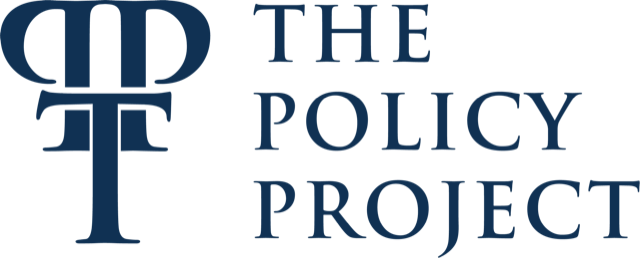Why are Utahns paying sales tax on tampons but not Viagra?
If you’ve perused a drug store recently, you likely noticed that for being 0.3527 of an ounce of cotton with a string attached to it, tampons are expensive. Like, really expensive.
The average menstruator spends $20 on period products per month according to the National Organization of Women. Oh, and that’s just for the products themselves— Utah women will collectively spend about several BILLION DOLLARS in their lifetime on just sales tax for their products. That’s a big deal for anyone, especially a single mother trying to feed her family on one paycheck or a sixth grade girl with no say in the her family’s finances.
If you don’t have a period, but do have an X and Y chromosome— the tax code has you covered. The average cost of Viagra, a medication to help men who have “difficulty getting an erection or keeping it long enough for sex” according to their website, is around $1.80 per tablet. Don’t worry about that pesky couple hundred billion tacked onto tampons; your pills have been deemed “medically necessary!” Save your change, there’s no sales tax!
While tampons and Viagra could rightly be considered an apples-to-oranges comparison, the point stands. Menstruation is normal and healthy, yet many are suffering health risks, missed work and school, and embarrassment by not being able to afford the products they need. If medications like Viagra are deemed a necessity and void of sales tax, pads and tampons should be too.
In 2020, Utah lawmakers passed a large tax reform bill that, among other things, eliminated the tax on period products. Unfortunately, other aspects of the bill caused public outcry and it was ultimately overturned. As of 2022, tampons are still considered “non-essential” and are taxed in Utah.
(Map courtesy of The Washington Post)
Utah needs to repeal the Tampon Tax to ensure period products are recognized as medically necessary, purchasing them is not a financial burden, and women are heard by lawmakers.
Period products are medically necessary
As a University of Michigan article states, “access to menstrual products is a right, and feeling clean, confident, and capable during one’s period is a necessity”.
Being unable to afford products carries potentially severe health risks. Girls resort to using rags, paper towels, or whatever they can find which can cause infections of the reproductive and urinary tracts, says UNICEF’s blog, Global Development Commons. This can lead to infertility and Hepatitis B.
Rogaine, sunscreen, Band-Aids, and ChapStick are a couple of other items that have earned the title “medically necessary” and skip the sales tax. Because nothing, not even bacterial vaginosis that leads to infertility, is worse than chapped lips.
Periods should not be a financial burden
There’s a short-term cost to exempting period products from sales tax but a long-term impact. Girls and women who stay in school become educated, educated women attain higher-paying jobs, better jobs allow women to care of their family and community, women’s economic contribution improves society for everyone.
Remember that $330 billion in sales tax? Sure, that’s reduced public revenue— but that’s money that could (and should) remain in the hands of girls and women.
(Photo courtesy of The Salt Lake Tribune)
Repealing the sales tax will empower Utahns
In her book, “Periods Gone Public”, Jennifer Weiss-Wolf writes that periods are a critical aspect of “the civic participation of more than half the population.”
Only 20% of Utah state legislators and 0% of federal legislators are female. This makeup of our government means there might be an extra stigma surrounding menstruation at a legislative level.
Emily Bell McCormick, founder of The Policy Project, says lifting the tax is about “giving these girls a chance to find their voice. It’s about teaching [them] about leadership, about how government works and about how to have your voice heard.” Legislation will not only make period products more physically accessible; it will make once-taboo conversations about menstruation more commonplace too.
Addressing counterclaims
When University of Texas Ph.D. student Ziyue Xu declared in her research that “lifting the Tampon Tax isn’t an efficient way to help women”, many unmotivated legislators surely breathed a sigh of relief. “In Illinois, the pretax prices rose 1%. It’s economically inefficient, so let’s just leave things the way they are and let me go back to my tax-free Viagra with a guilt-free conscious.”
In her article published in the Chicago Booth Review, Xu explains that “companies making and selling tampons and pads expect to see women buying more of these products, as removing the tax makes them cheaper.” Basically, if big-name period product companies add just a bit to the price after the tax is gone, the cost is still less than it was, and they cross their fingers no one will catch on.
Before we banish a Tampon Tax repeal to the land of forgotten bills, it’s important to remember that Xu’s research was just in Illinois. Similar studies in other states show the exact opposite, consumer prices continued to decrease after the repeal of the tax on period products. While Xu argues a decline in public revenue, don’t forget that that equates to an increase in the funds retained by women. Not to mention, as more people get on board with what is being called the “menstrual movement”, companies are taking note. CVS pharmacies announced this October that they will pay for the Tampon Tax on every period product sold in their stores. Some companies might see the repeal as an opportunity to cash in, but it seems most, whether out of generosity or public image, will continue to do what they can to support their female customers.
Aunt Flow, Shark Week, and the Crimson Flow. No matter what you call it, Utah needs to recognize that abolishing the Tampon Tax is the key to ending discriminatory legislation that is currently bleeding Utah women dry. Period.



